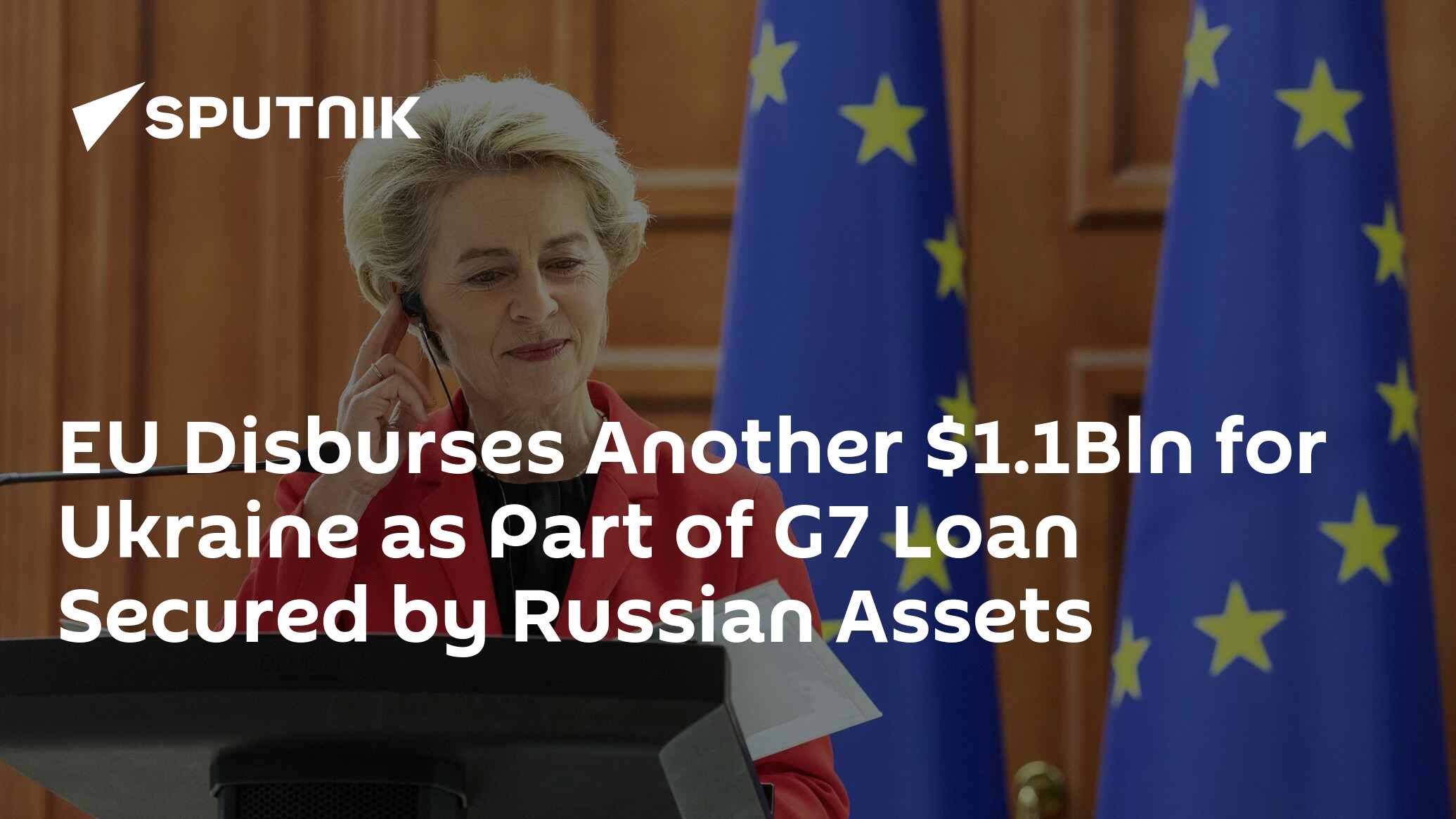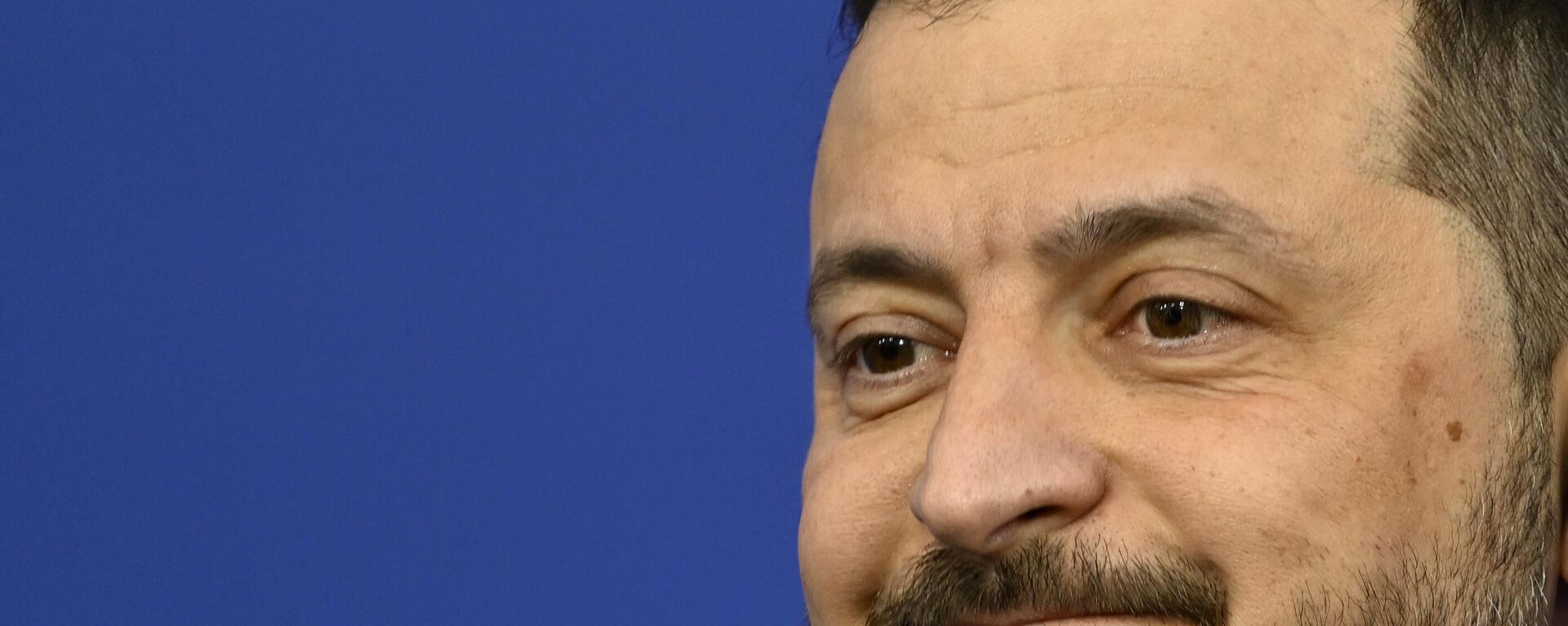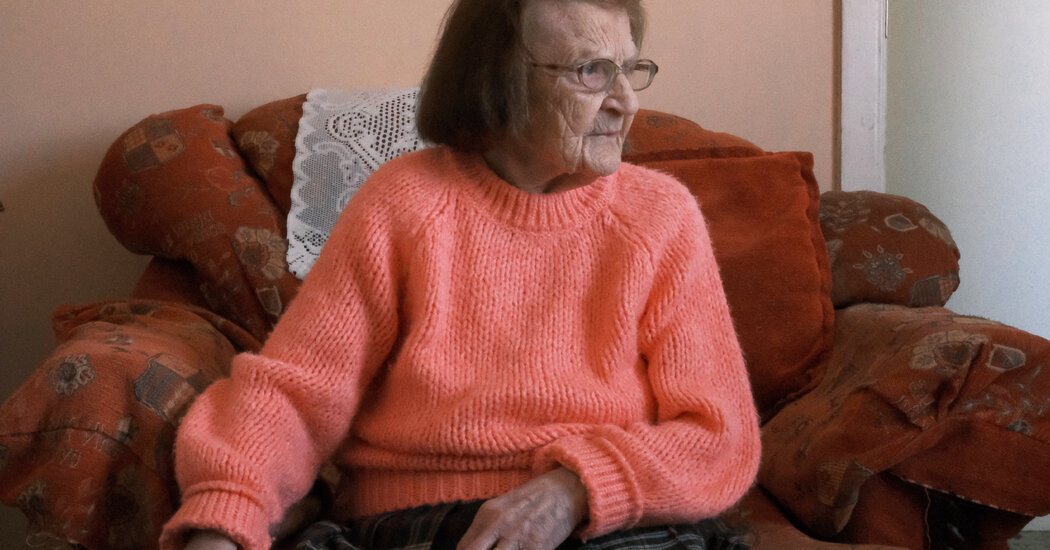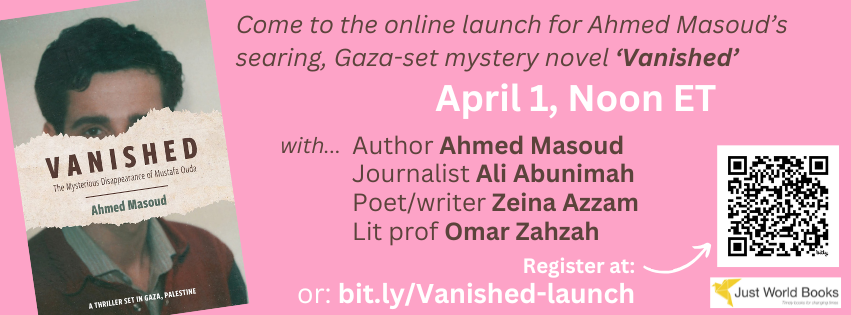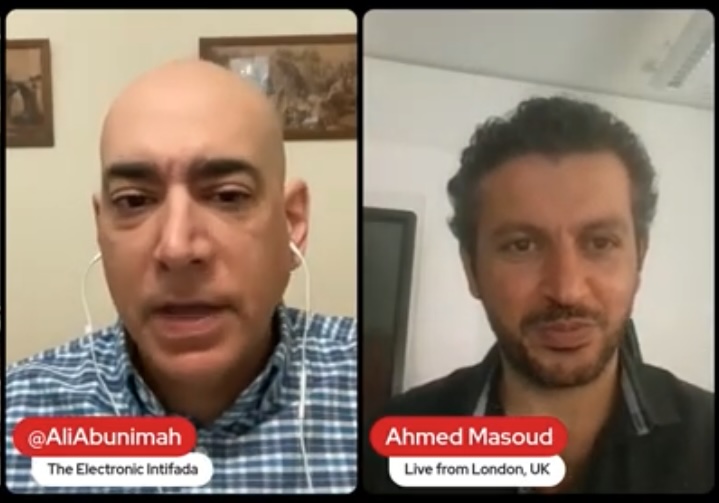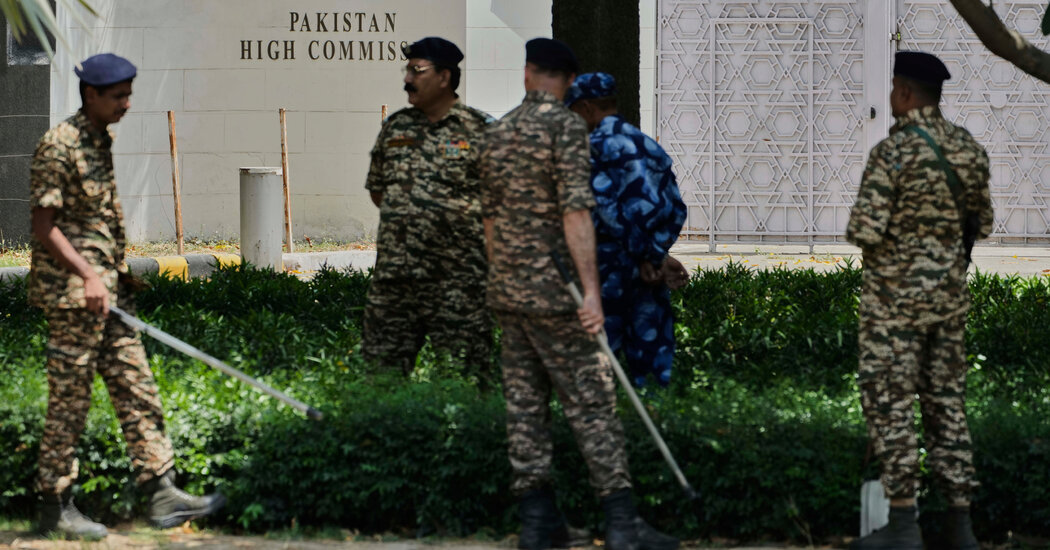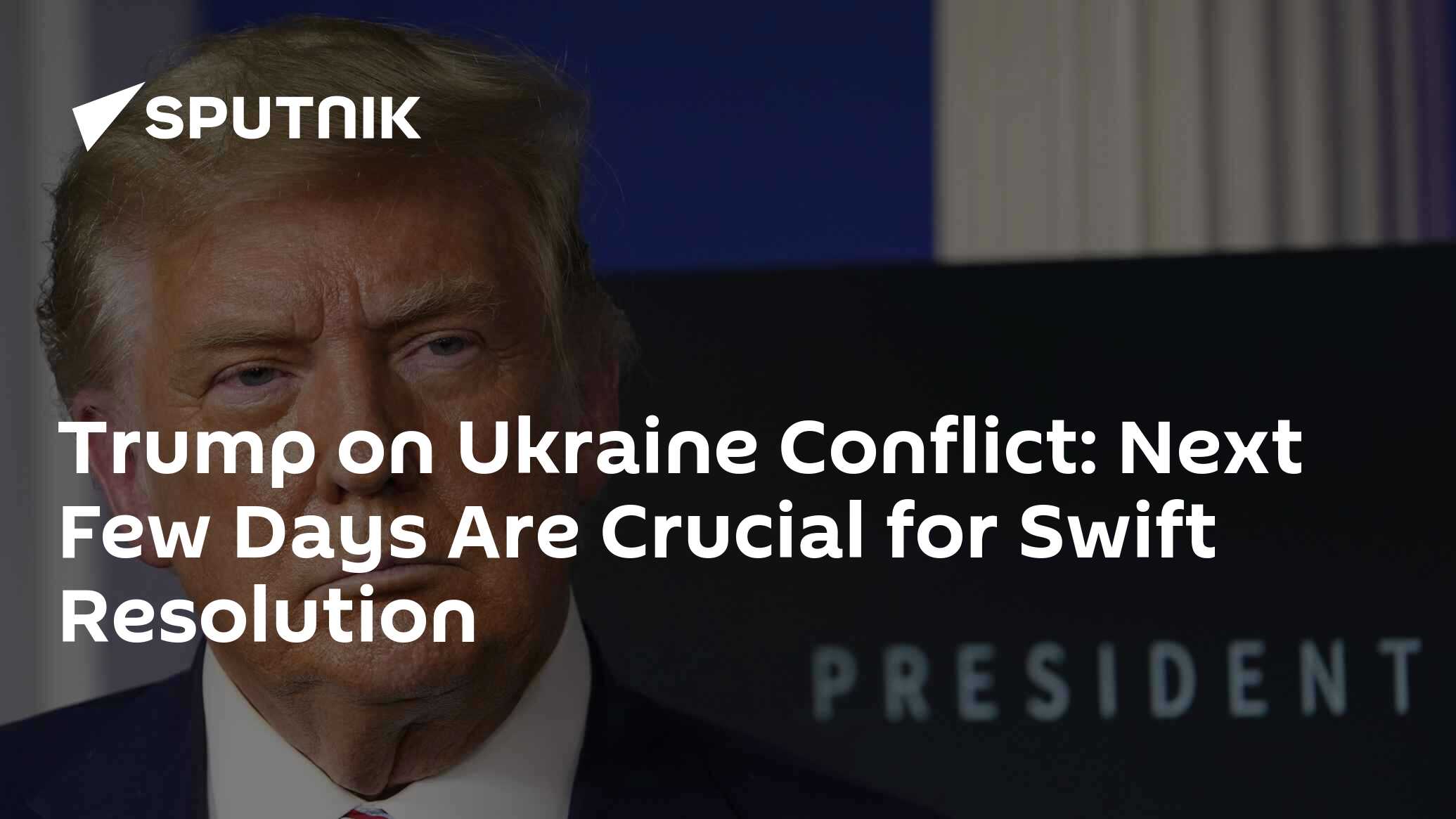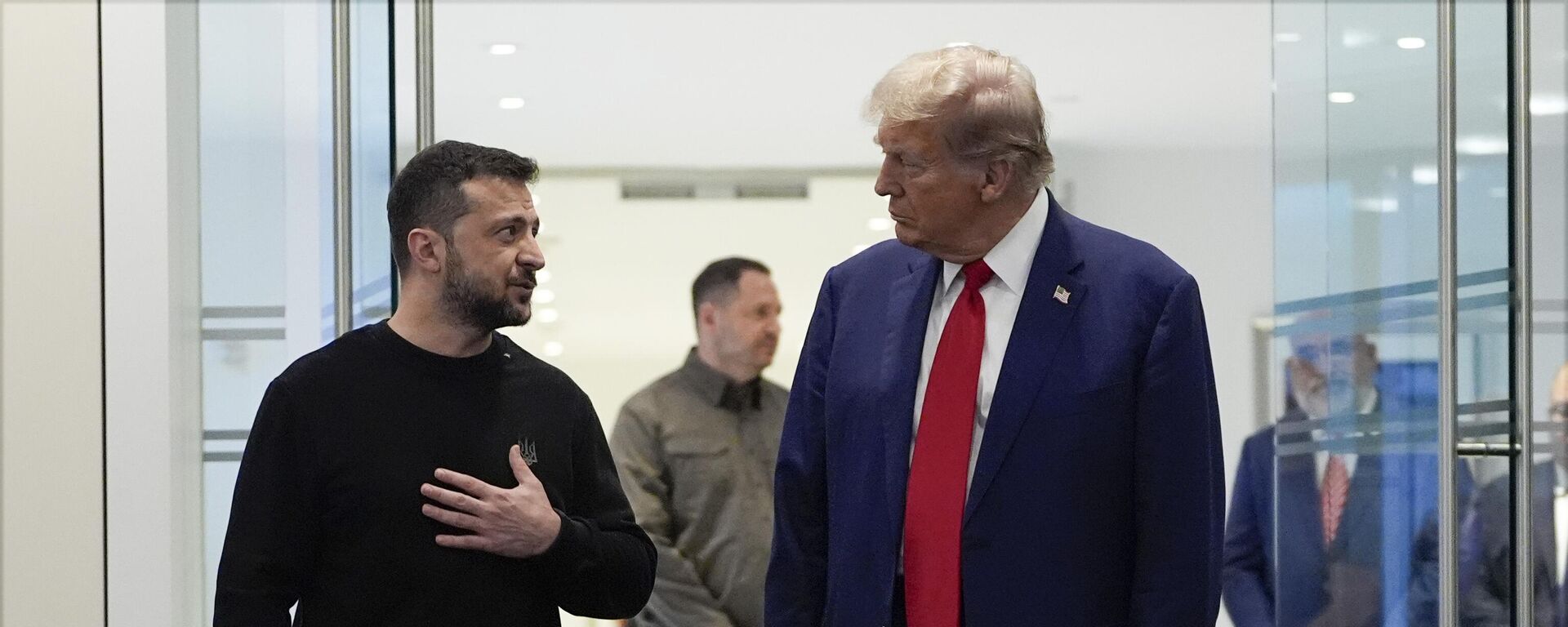In Spring 2025, Just World Books is re-issuing– for, in the first instance, North American readers*– the Gaza-set mystery novel Vanished: The Mysterious Disappearance of Mustafa Ouda, by Palestinian-British wrter and dramatist Ahmed Masoud.
The main event for this very timely (re-)launch of Vanished will be presented online on April 1, starting at Noon ET. Author Masoud will be in conversation with:
- Electronic Intifada’s Ali Abunimah,
- poet and writer Zeina Azzam,
- Ethnic Studies/Lit professor Dr. Omar Zahzah, and
- JWB’s CEO Helena Cobban (who promises there will also be time for some audience participation.)
Pre-registration is required for this launch event. You can register at bit.ly/Vanished-launch, or by using the QR shown above.
When Vanished was first issued in 2015 by ] Cyprus-based publisher Rimal Books, it attracted many rave reviews. It was shortlisted for the MEMO Palestine Book Awards in London, whose jury described it as “fast-paced and compelling.”
The New Internationalist described it as,
“[A]n accomplished novel that, quietly and without didacticism, gets to the heart of the terrible sacrifices demanded of a people living in a state of permanent, unrelenting siege.”
Rebecca Sowray wrote,
“There are many bittersweet references to the idea of loss and return; the lost country, the lost father. The resolution of those themes, when it comes, towards the end of the novel, is both startling and unexpected.”
You can see many of the other plaudits Vanished received back in 2015, at this page on the JWB website.
A few years ago, the pioneering founder of Rimal Books, Gaza-born Nora Shawwa, passed away and amidst radical changes in the company’s activities the copyright in Vanished reverted to Masoud.
JWB’s Helena Cobban said she was delighted to re-issue the book, which had never previously been well-known in North America and which acquired urgent new poignancy and relevance given the Israeli military’s thoroughgoing (and still ongoing) devastation of the whole of Gaza.
Vanished is set in the 1980s, 1990s, and 2000s in the homes and alleyways of Gaza’s Jabalia refugee camp, which over the past 18 months has met with systematic destruction from Israel’s demolition squads.
In a short segment on the Electronic Intifada livestream on March 27, Masoud talked from his current home in London about the fate of his family back in Gaza– and a little about what the novel Vanished has meant to him and his readers over the years.
We hope you can join us for the launch event on April 1. Be sure to tell your friends about it, too!
** JWB is publishing the book in the first instance in the company’s core markets in the United States and Canada and is actively looking for publishing partners interested in acquiring rights to publish it in other world markets.
